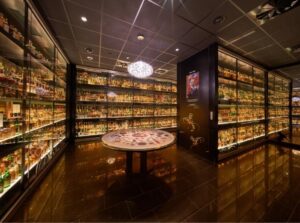Why do you say Slàinte Mhath, and what does it mean?
Raising a glass is common practice in many pubs, bars and gatherings, whether it’s for celebration, commiseration or simply because it’s the end of a long week. There are so different ways to say “cheers” in many countries all over the world, however, in Scotland, it’s Slàinte Mhath!
Irish or Scots Gaelic?
The term Slàinte Mhath (Pronounced Slanj-a-va) is actually both Irish and Scots Gaelic. The way the phrase is pronounced is the same for both languages, however the way it is spelt differs subtly. The Irish spell it Slàinte Mhaith. The phrase translates to “Good health” in both dialects, and if you want to respond to this using Scots Gaelic, you would say, “do dheagh shlainte” meaning “to your good health.”
Where did Gaelic originate?
Scots Gaelic is believed to have come from a northern region of Ireland and was carried over to Scotland, particularly to the west coast and Highland areas in around the 4th or 5th century. The people who spoke Gaelic were referred to as the Gaels. The spread of the language grew to the Lowland areas of Scotland in the 8th century.
Why do we say Cheers?
Alcohol has been around for many centuries and so has raising a glass and toasting to good health. It is not exactly clear when and where this tradition originated from, however there is a theory that the practise of raising a toast may have derived from the Romans, who would raise a glass during ceremonies or rituals to honour the gods. A sacred liquid such as blood or wine would be used as an offering or even as a prayer for good health.
The Gaelic language is still spoken throughout the west coast and in some parts of the Highlands, and is experiencing a revival across the country from old and new speakers alike. Slàinte Mhath may just be a simple phrase, but it highlights and educates visitors from across the world about Scotland’s native language, and that’s something we can all keep toasting to!
